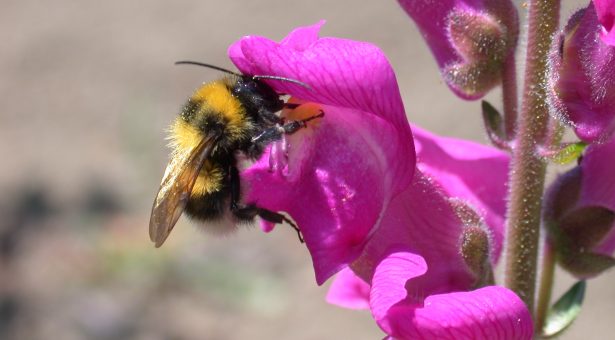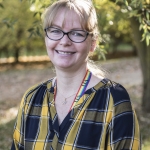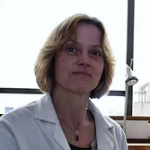The NRPDTP Team

Director of the NRPDTP
Professor Anne Graham
Professor Anne Graham joined as the Director of the NRPDTP (and Chair of Norwich Bioscience Institutes Graduate School Executive) in June 2024 from the University of Bradford where she was Head of the School of Chemistry and Biosciences. She has been PI of a research group studying inflammatory signalling pathways in human endothelial cells which line blood vessels and how that leads to cardiovascular disease. As well as significant previous Postgraduate Research Director experience, she holds national supervisor recognition and is Fellow of the Royal Society of Biology and Institute of Biomedical Science (IBMS).
Administrative Team

Michelle Eastman, Postgraduate Research Manager (Norwich Research Park)
Michelle joined the team in September 2018 and moved to her role as DTP Officer in May 2020 before becoming the Postgraduate Research Manager in late 2023. Michelle leads the administrative team responsible for PGR students at the Norwich Bioscience Institutes. Previously, Michelle worked in the Research Office at Norwich University of the Arts but her background is in finances having worked for many years in the banking and pensions sectors.
Mark Meehan, Doctoral Training Programmes Officer
Mark has supported postgraduate research students in the Norwich Bioscience Institutes Graduate School and supporting Doctoral Programmes since joining the team in 2011. Mark currently oversees the administrative support for a number of Doctoral Programmes, including the Norwich Research Park Bioscience Doctoral Training Partnership. Mark has nearly 20 years’ experience in supporting student and programme administration at the University of East Anglia and Norwich Research Park.
NRPDTP Management Board
The Management Board of the Norwich Research Park Biosciences DTP includes senior faculty members from each of the Partners within the programme. In addition to the Director and Manager above, the Management Board Members are:

Dr Wilfried Haerty, Group Leader – Earlham Institute
Wilfried Haerty is a senior group leader at the Earlham Institute and has over 15 years of expertise in bioinformatics, comparative genomics, and transcriptomics. His group uses genomics, transcriptomics, and epigenomics solutions across scales: from species, to populations, tissues, and single-cell to characterise the impact of mutations on gene regulation. He is also the lead on the UKRI BBSRC Institute Strategic Programme “Cellular Genomics”

Professor Jonathan Jones, Group Leader – The Sainsbury Laboratory
Jonathan is a Senior Group Leader at The Sainsbury Laboratory. His group uses molecular and genetic approaches to study disease resistance in plants. He has made numerous and sustained contributions to the science of plant pathology. His group was among the first to isolate and characterize a plant disease resistance gene and he was the first to demonstrate that resistance induced in plants towards pathogens is based on specific classes of innate immune receptors.

Professor Nathalie Juge, Deputy Chief Scientific Officer and Group Leader – Quadram Institute Bioscience
Nathalie is a Group Leader at the Quadram Institute and Honorary Professor at the University of East Anglia (School of Biology). She has been deputy leader of two Institute Strategic Programme and is currently the Institute Deputy Chief Scientific Officer and an elected Fellow of Royal Society of Biology since 2020. She has over 25 years expertise in molecular studies of carbohydrate-protein recognition in relation to gut biology & microbiology and food biotechnology. Since 2007, she leads a Research Group focusing on the glycobiology of host-microbe interactions, particularly between gut commensal bacteria and mucin glycans, and their role in human health and disease. Her Group has made significant advances in the mechanisms underlying the adaptation of gut bacteria to mucus.

Professor Andrea Munsterberg, Professor of Developmental Biology – UEA
Andrea is Professor of Developmental Biology in the School of Biological Sciences at the University of East Anglia. Her group investigates cellular and molecular mechanisms that underlie embryonic development. Chick embryos are used as a vertebrate model organism and the mechanistic insights obtained not only increase the understanding of early embryo development, but also impact areas such as stem cell science and regenerative medicine.

Dr Richard Smith, Group Leader – John Innes Centre
Richard Smith is a Group Leader at JIC within the Genes in the Environment research programme. His group uses mathematical and computer simulation techniques to investigate questions in plant development. Working in close collaboration with experimental biologists, they develop cellular-level simulation models of hormone signalling and patterning in plant tissue. The models involve a biochemical aspect, genes, proteins, hormones, combined with change of geometry as cells divide and tissues grow. The group are interested in the interaction between these two processes and are researching methods to quantify mechanical properties in plant tissues, to facilitate the construction of biophysically based simulation models of plant growth.

Sarah Bennion, Finance Controller
Sarah is the Financial Controller at the Norwich Bioscience Institutes. She is responsible for providing financial analysis and support for the DTP programmes. She has over 15 years experience in various financial roles across a range of companies. She obtained her accountancy qualification in 2008 and has a BA in Finance from Sheffield University.

Dr Sarah Yeates, Training Co-ordinator – UEA Faculty of Science
Sarah is the training coordinator of the Personal and Professional Development Programme for PhD students in the Faculty of Science at the University of East Anglia. Sarah was previously a lecturer in the School of Biological Sciences at UEA teaching a range of subjects across evolution, ecology and environmental science. She gained her PhD from the School of Biological Sciences at UEA and developed her career through post-doctoral positions at the Max Planck Institute for Behavioural Ecology in Germany and then at UEA where she investigated the evolution of gamete compatibilities.

Beth Bunn Student Opportunities Manager – UEA
Beth is the Student Opportunities Manager in CareersCentral at the University of East Anglia. She oversees work based learning activities such as placements and internships, business engagement with national and local employers to secure high quality developmental opportunities for students along with part time work, volunteering and mentoring. Beth also supports in the delivery of the NRPDTP’s PIPS programme.


